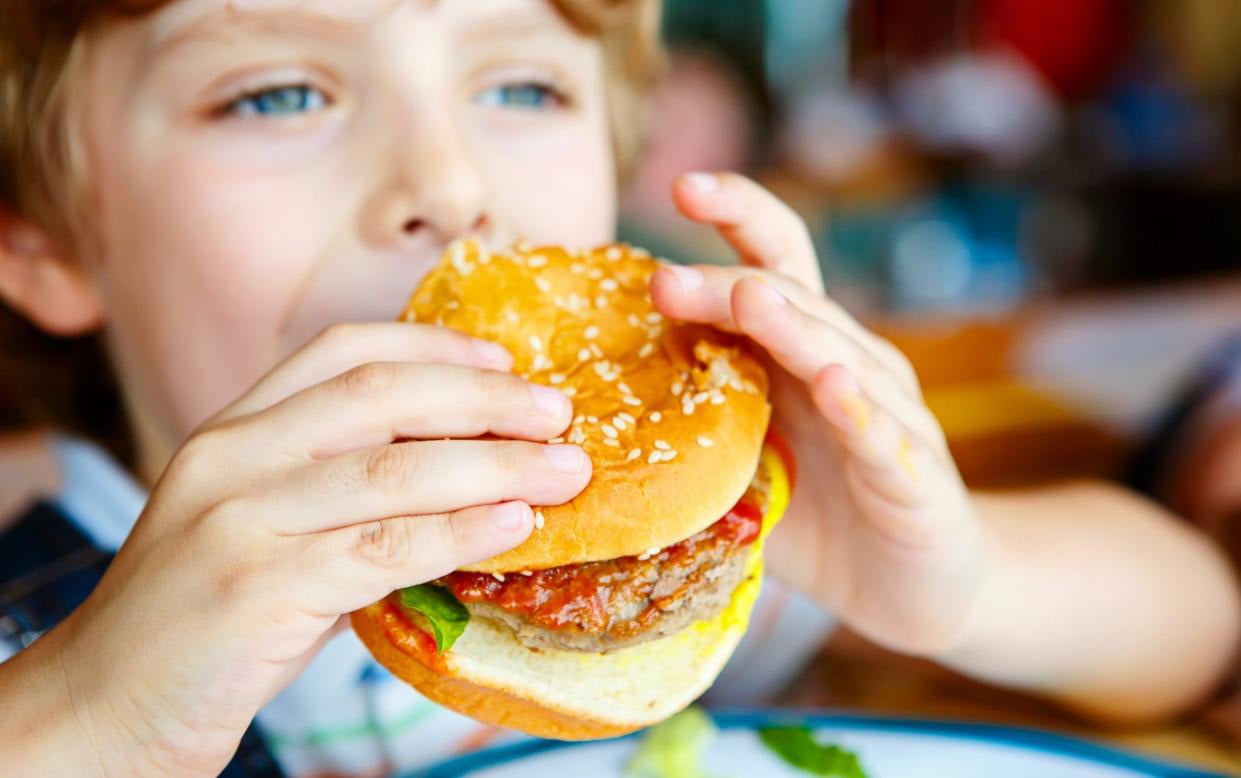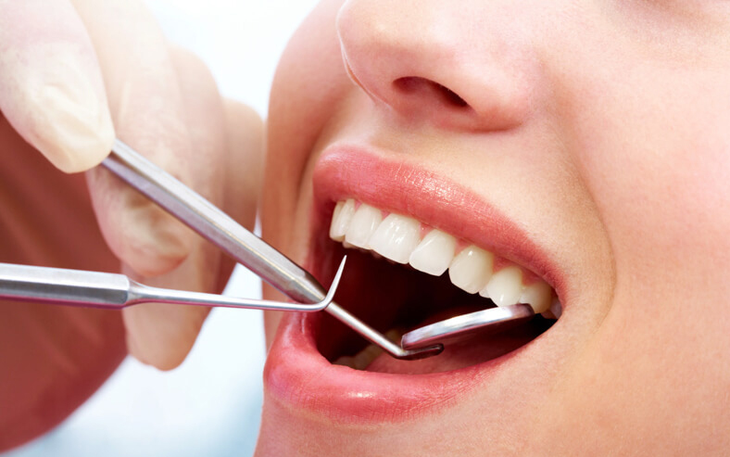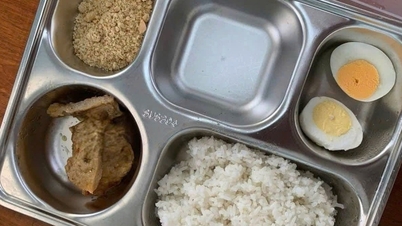Ultra-processed foods may be causing children to develop buck teeth, researchers warn.

Due to modern diets, the jaw size of today's young generation is shrinking, leading to an increase in dental deformities - Photo: The Telegraph
According to The Telegraph, scientists say that due to modern diets, the jaw size of today's young generation is shrinking, leading to an increase in dental deformities.
Ultra-processed foods deform teeth and jaws
The findings are the latest in a series of studies investigating changes in tooth structure, which have reduced jaw size over the decades, leading to increasingly crowded teeth.
Researchers from the faculty of medicine and health sciences at the Catholic University of Valencia say the shift from a "hunter-gatherer" diet rich in meat and natural foods to one based more on cereals has driven some of these changes.
They also believe the shift towards more ultra-processed foods and softer diets – with foods designed to be “hyper-palatable”, allowing people to consume large amounts – is also to blame.
Research shows that young children in the UK get almost half their calories from a diet of ultra-processed foods such as cereals, yoghurts, ice cream and ready meals. This rises to 59% by the time they reach the age of seven.
Spanish scientists, when studying the diets of children aged 3 to 5 years, found that a diet consisting mainly of liquid and semi-solid foods affects jaw development.
In-depth research, which looked at eating habits, tooth structure and skull shape, found that children who ate softer foods were more likely to have overbites and lack the natural spaces between their teeth, which are needed in the early stages for larger teeth to come in later.
Professor Tim Spector, a leading health scientist, says there is growing evidence that modern diets are distorting the growth of human skulls.
“We’ve been experiencing a jaw shrinking ‘epidemic’ for the past couple of hundred years, but it’s really accelerated in the last two decades,” he says. “As a result, we’re seeing a significant increase in orthodontic problems in children – the use of braces is becoming more common, and there are more crooked teeth.
The strongest current hypothesis as to why jaws are shrinking so rapidly is that we are feeding children soft, processed foods all their lives, causing the jaw muscles and jaw size to not develop properly, and not really adapt to chewing."
He added that in the debate about ultra-processed foods, much of the discussion focuses on the chemicals in these foods without paying enough attention to their soft texture, which makes them easy to consume in large quantities, causing obesity as well as jaw shrinkage.
Softer diets have negative effects
Chewing hard, fiber-rich foods, such as fruits, vegetables or natural proteins, helps exercise the jaw, preventing problems such as malocclusion and deficiencies in the size and shape of the jaw, said Laura Marques Martinez, one of the researchers.
"In contrast, diets based on ultra-processed foods, which are soft and do not require much chewing effort, negatively affect jaw development. These foods, by not stimulating the muscles and bones of the maxillofacial region sufficiently, can lead to underdeveloped bone structure and an increased risk of malocclusion and respiratory problems."
The scientists note that hunter-gatherers "did not consume huge soft meals or calorie-rich but nutrient-poor liquids, such as soft drinks," and argue that modern diets have moved away from traditional practices, such as encouraging children to chew their food 30 times.
“It appears that the transition to a softer diet disrupts the signaling system that determines appropriate maxillofacial structure,” they say.
An earlier study from the University of Kent also found that many common orthodontic problems in industrialised countries are due to "modern soft diets causing jaws to grow too short and small for tooth size".
Research by Dr. Noreen von Cramon-Taubadel concluded that the shape of the lower jaw, and to some extent the shape of the upper palate, is related to feeding behavior.
Hunter-gatherer groups had longer, narrower lower jaws, suggesting more space for teeth to grow properly, while people who ate agricultural foods typically had shorter, wider jaws, the scientists said.
 When should wisdom teeth be removed?
When should wisdom teeth be removed?Source: https://tuoitre.vn/thuc-pham-sieu-che-bien-co-the-khien-tre-em-bi-ho-rang-20250113131449447.htm




![[Photo] The 1st Government Party Congress held a preparatory session.](https://vphoto.vietnam.vn/thumb/1200x675/vietnam/resource/IMAGE/2025/10/12/1760257471531_dsc-4089-jpg.webp)
![[Photo] National Assembly Chairman Tran Thanh Man attends the 725th anniversary of the death of National Hero Tran Hung Dao](https://vphoto.vietnam.vn/thumb/1200x675/vietnam/resource/IMAGE/2025/10/12/1760285740475_ndo_br_bnd-8978-jpg.webp)
![[Photo] Delegation attending the Government Party Congress visited President Ho Chi Minh's Mausoleum](https://vphoto.vietnam.vn/thumb/1200x675/vietnam/resource/IMAGE/2025/10/12/1760240068221_dsc-3526-jpg.webp)




































































































Comment (0)